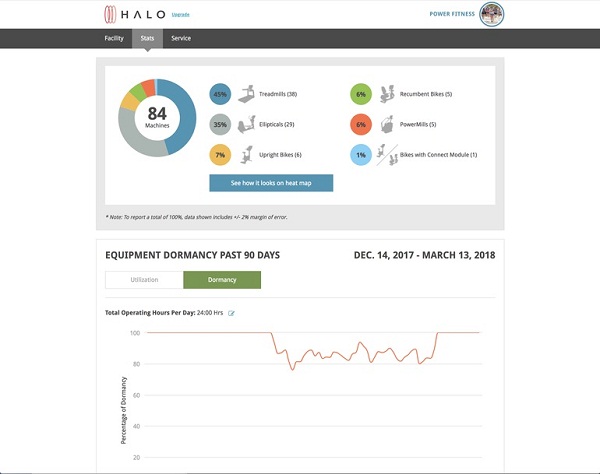Introducing the Halo Fitness Cloud
Life Fitness is an American fitness equipment company that specializes in the production and distribution of equipment such as stationary bikes and treadmills. They developed the industry’s first electronic stationary bicycle. It seems that they are expanding their items as recently, they launch a cloud facility management system known as the Halo Fitness Cloud.

Nowadays, almost everyone as access to the internet and most of them want something that they can use online. If you often go to the gym, you might see someone using Halo Fitness Cloud. In order to compete with their competition, the company decided to launch their own.
Life Fitness’ cloud venture also highlights digital transformation as well as industry-specific cloud offerings from companies that traditionally aren’t software providers. In this new world, Life Fitness becomes a cloud ERP system and an office furniture player like Steelcase becomes a facility productivity Iot vendor.
Halo Fitness Cloud has several plans, but the overall aim for Life Fitness is to provide more touch points and personalized digital experiences to gym members. Life Fitness noted that gym members cancel memberships at a rate of 30 percent a year. That churn is brutal and the bet is better fitness management tools can improve retention.
Jason Worthy, vice president of digital solutions at Life Fitness, said the Halo effort comes out of the company’s digital ventures group. Halo, which runs on Amazon Web Services, is designed to aggregate a member’s data to give gym operators more insights to goals and lifestyle choices outside of the health club.
“There are 2 million workouts a day happening on Life Fitness and we can enable a conversation that’s different with a hybrid of software, hardware and relationships,” said Worthy.
Hybrid Cloud has taken on new life in 2017. The term hybrid cloud has taken on many meanings in the past. Despite the vagueness, enterprises are moving forward with hybrid cloud. In this report, you will see that over 80% of the enterprises we surveyed indicated they have a hybrid cloud strategy. It’s no surprise that hybrid cloud is core to digital transformation.
This report outlines results from a survey of 1,175 respondents. Learn how organizations are moving forward with hybrid cloud with different use cases, what are the drivers for doing so, and what are the benefits and challenges of planning and/or deploying a hybrid cloud environment.
As for the business model, Halo has annual plans that run from $3,500 to $7,000 and add-ons that are available. There’s also a standard free version of Halo so gym operators can try out the cloud service.
According to Life Fitness, the Halo Fitness Cloud includes:
- A guided fitness journey for exercisers that includes recommendations on apps, wearables and workouts. Members can schedule classes, communicate with trainers and track goals.
- Facility operators can manage facility and equipment maintenance and track when a member is at risk of canceling their membership.
The fitness industry is fragmented and Life Fitness is betting that it can leverage its equipment footprint to expand into enterprise resource management. Life Fitness’ brands include Life Fitness, Hammer Strength and Cybex in addition to others.
What’s unclear is how much Life Fitness will have to compete with established enterprise vendors. For instance, Life Time Fitness, a large health club chain, has bet on cloud offerings from the likes of Salesforce and Workday for its operations.